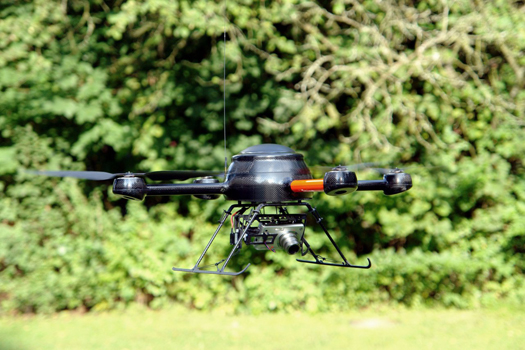

Anyone following the news out of America’s Af/Pak engagement knows that drones are being used increasingly – some say alarmingly so – to ferret out and eliminate militants along the Afghanistan-Pakistan border. But if drones can track militants hiding in the Pakistani hills, why can’t they track a celebrity in Hollywood Hills? A celebrity-photo agency is developing a camera-equipped paparazzi drone that could soon be tracking and terrorizing celebrities in public and at their homes.
As aviation goes, of course, drones are the next big thing. The military is training up drone pilots and purchasing unmanned aerial vehicles at unprecedented rates, and being the military they’ve drafted a fairly stringent set of rules for how those drones can be used. In the civilian space, those rules are far less defined. The FAA limits the domestic use of drones to those operated by the governent – that is, they’re not cleared for commercial use.
But there is a gray area: recreational drone use. The FAA hasn’t taken up the use of recreational drones, which can be purchased on the Web or built at home using open source designs available for download. The FAA suggests – but does not require – these drones stay below 400 feet, stay clear of airports and other aircraft, and otherwise practice common sense. But they’re perfectly legal, and that loophole could provide lawyers a means to justify drone use for everything from airborne celeb stalking to the tracking of cheating spouses.
Of course, such behavior could ruin the lax recreational drone rules for everyone. Such use will certainly open up inquiries into privacy issues, and that in turn could lead to tighter, more concrete rules from the FAA or other regulators.
Then again, the door could swing the other way. With so much drone technology pouring into the marketplace – both military and civilian – the capabilities of the aircraft are expanding from streaming video to actually locking onto a specific target and tracking it through an urban landscape. The day might not be far away when small, unmanned aircraft sporting cameras and other sensor technology are a regular part of civil security measures (think London’s street corner security cams, but mobile) or even used by parents to track and monitor children when they’re away from the home.
Splash News, the celeb-photo agency developing its own drone is less concerned with security and more concerned with taking paparazzi off the street (where they are something of a public menace in their cars) and and into the skies. So while we wait for the civilian drone revolution, we should at least reap the benefits of a spike in celebrity sunbathing pics.
